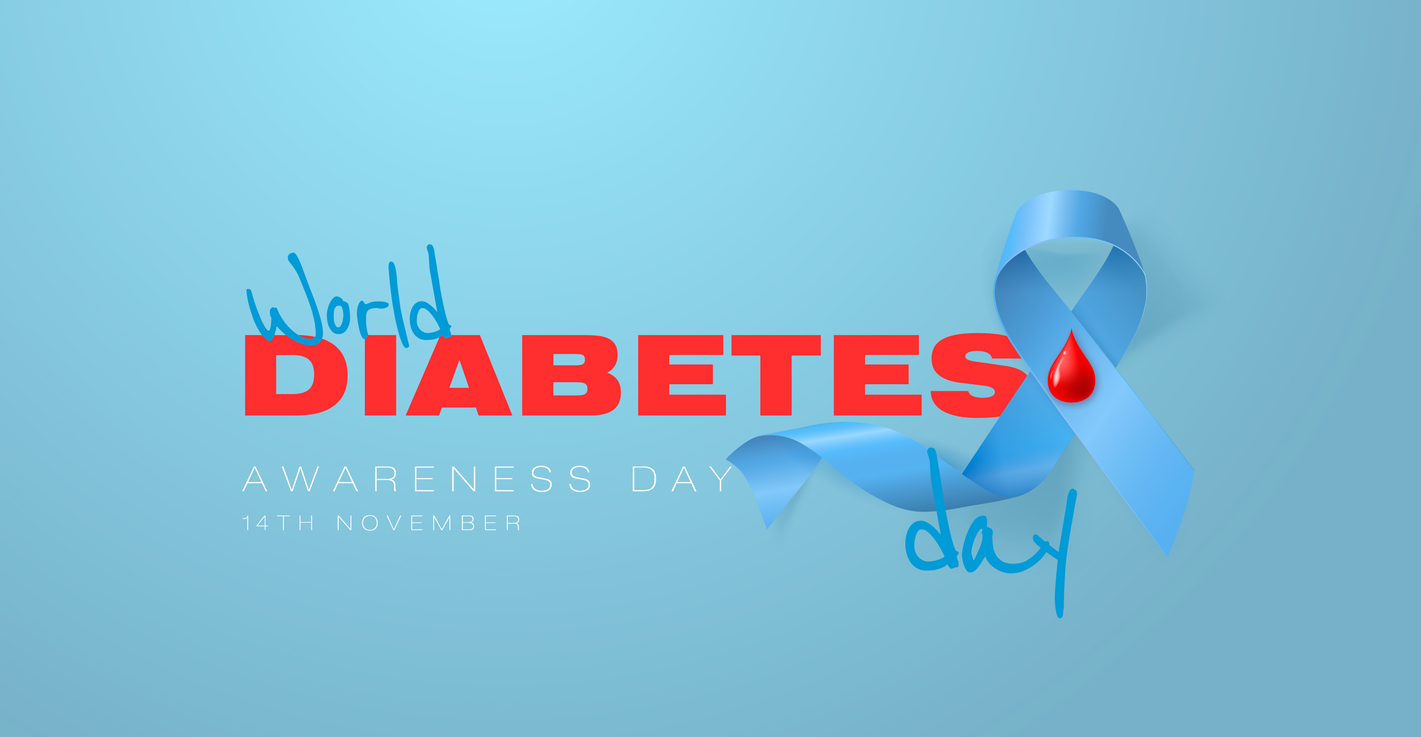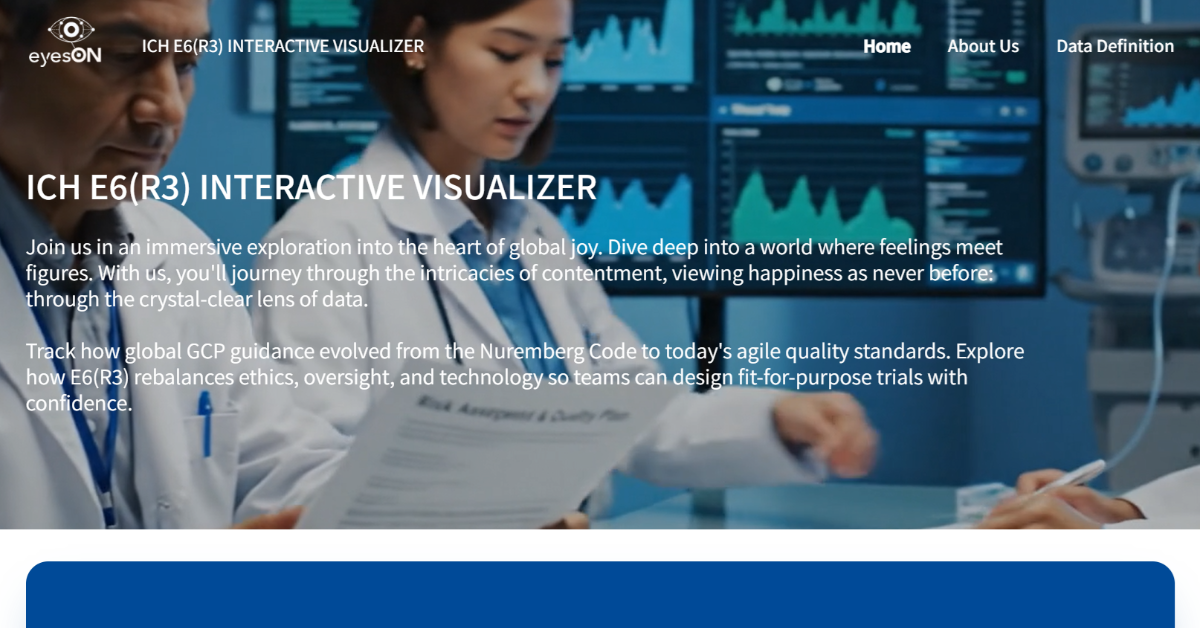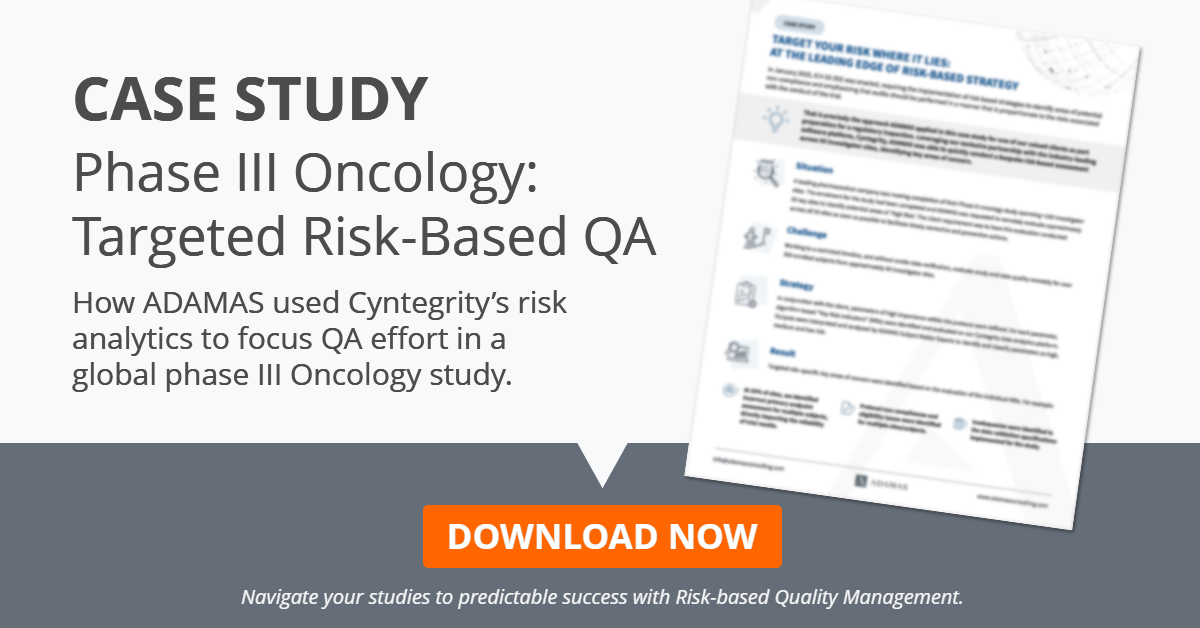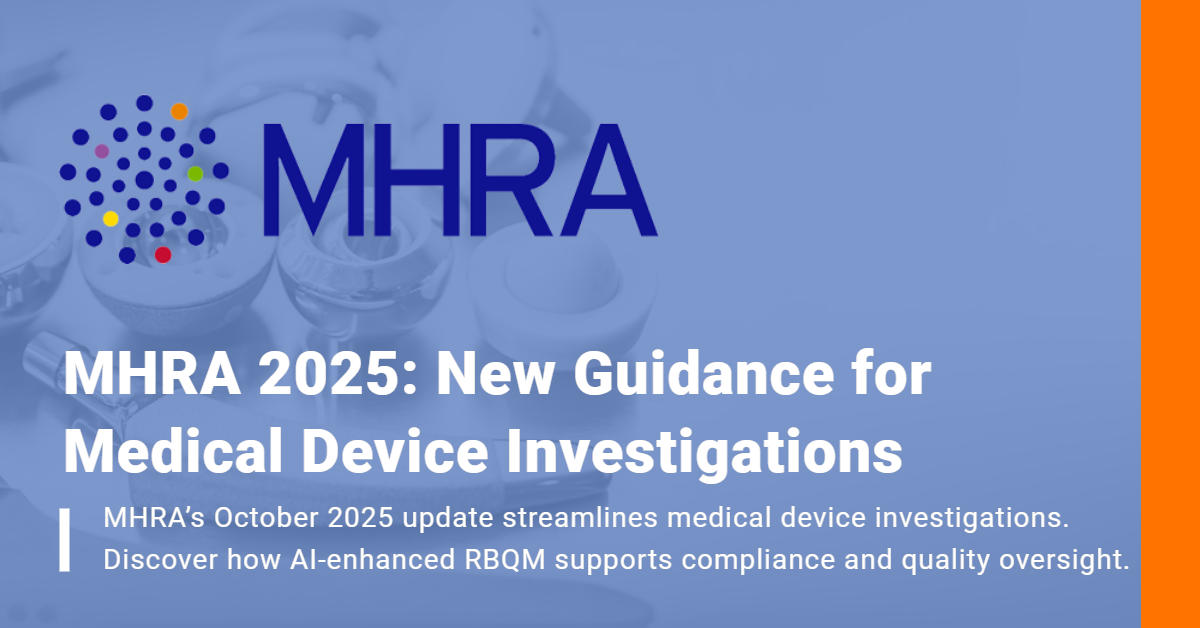The Importance of First-in-Human (FIH) Trials
First-in-Human (FIH) clinical trials, also known as Phase 1 trials, are a pivotal stage in drug development. Conducted with a small group of healthy volunteers, these studies mark the first testing of a new drug in humans. Given the high stakes and unique challenges, ensuring rigorous management is crucial. At Cyntegrity, we specialize in Risk-Based Quality Management (RBQM) solutions designed to address these complexities effectively.
Challenges in Phase 1 Trials
FIH trials come with distinct hurdles, including adherence to strict protocols, complex study designs, and maintaining stable conditions. Even minor deviations can significantly impact data quality and subject safety. Traditional quality management approaches often struggle to meet the real-time demands of these studies.
The Role of RBQM
RBQM focuses on identifying, assessing, and mitigating risks that could adversely impact trial quality. By employing RBQM, sponsors and CROs can proactively manage risks, ensuring superior data quality and enhanced subject safety.
How MyRBQM® Portal Enhances Phase 1 Trials:
- Critical Event Monitoring: In FIH trials, timing is critical. The Portal’s Key Risk Indicator (KRI)-based alerts warn sponsors immediately when there are systematic deviations from critical events, such as sampling timepoints or delayed data entry. This real-time monitoring ensures swift corrective action, maintaining the integrity of the study.
- Complex Study Design Management: FIH studies often employ complex designs like Latin square or complete block designs. MyRBQM Portal continuously tracks the correct allocation of treatment groups (in a blinded fashion) and adherence to randomization schemes. It also monitors enrolments, drop-outs, and, if applicable, replacement subjects. This ensures that the study design is faithfully executed, preserving the statistical power of the trial.
- Stability Assurance: Consistency is key in FIH trials. Our portal, through the built-in Centralized Statistical Monitoring (CSM) module, can quickly identify outliers, trends, and patterns in data, such as vital signs and lab data, to check for cases potentially requiring follow-up or interim visits/sample drawing and changes in the study environment. This feature helps maintain stable conditions throughout the study, enhancing data reliability.
- Uncontrolled Environment Detection: FIH trials often involve groups of subjects in close proximity, which can lead to unintended influences on behavior or adverse event reporting. The MyRBQM Portal can detect patterns in these reports, helping researchers identify and address any environmental factors affecting the study.
- Variance Monitoring: Unexplained variability in data can indicate issues like non-calibrated equipment or changes in staff. Our portal detects increases in variability, alerting sponsors to potential problems before they impact the study’s outcome.
- Cross-Study Subject Tracking: In a fascinating case study, MyRBQM Portal’s analysis across multiple studies helped detect “professional” study subjects who didn’t adhere to required wash-out periods. This unique capability enhances data integrity, reliability of results and subject safety across a sponsor’s entire clinical program.
Benefits of RBQM in Phase 1 Trials
Implementing RBQM with MyRBQM Portal in Phase 1 trials enhances data quality, improves subject safety, and boosts operational efficiency. Sponsors gain real-time insights, allowing for faster decision-making and potentially accelerating drug development.
At Cyntegrity, we are dedicated to advancing clinical research with intelligent RBQM solutions. The MyRBQM Portal is more than a tool—it’s a partner in your Phase 1 trials, ensuring top-notch quality and safety.


 The Healthy Volunteers – Phase 1 RACT is part of our expanding library, which also includes indications for Heart Failure, Oncology, Pulmonology, Diabetes, Cardiovascular, and Medical Devices.
The Healthy Volunteers – Phase 1 RACT is part of our expanding library, which also includes indications for Heart Failure, Oncology, Pulmonology, Diabetes, Cardiovascular, and Medical Devices.



